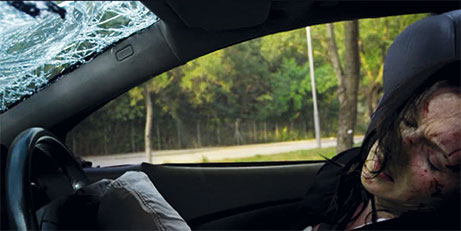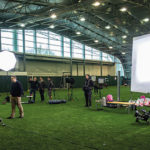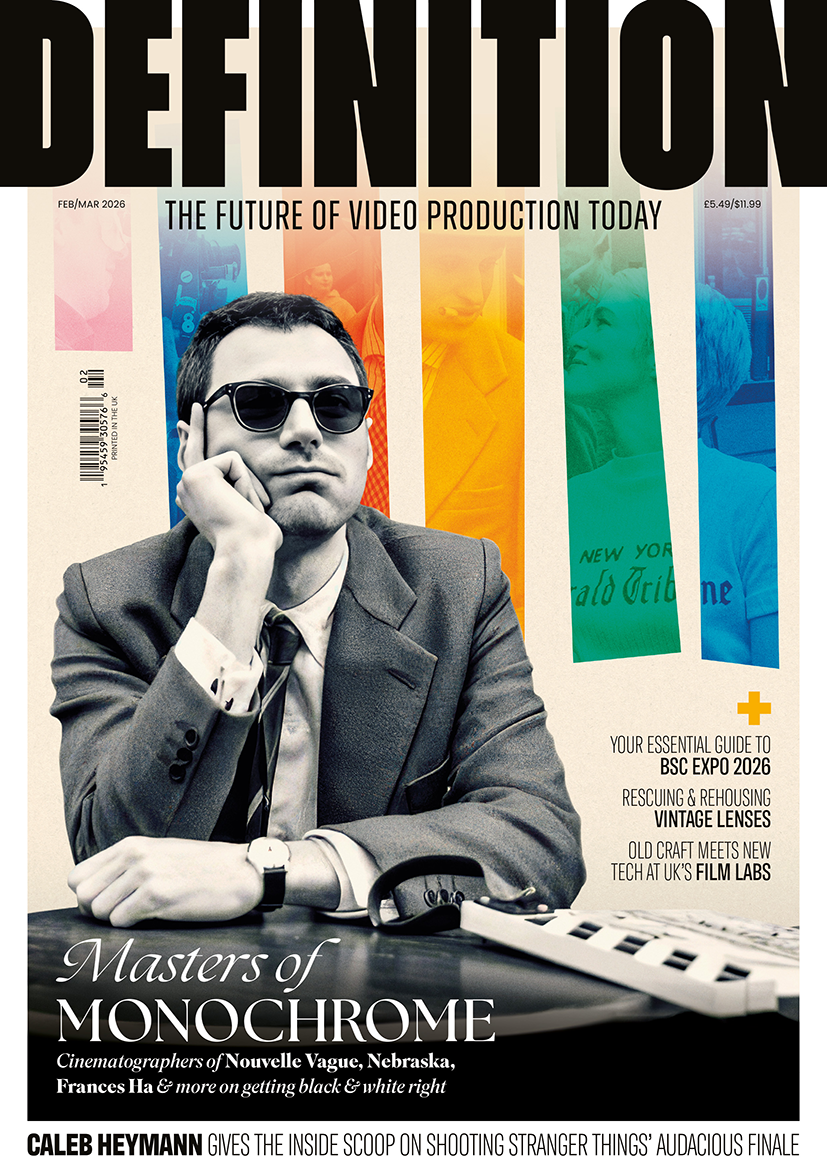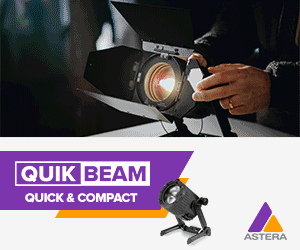
Culture Clash
Posted on Nov 26, 2018 by Julian Mitchell

 Eben Bolter shooting the crown scenes.
Eben Bolter shooting the crown scenes.
Shooting in Hong Kong and London gave DOP Eben Bolter two aesthetics to enhance this West/East ‘fish out of water’ story
As we found when we talked to DOP Jess Hall after he had shot the movie Ghost In The Shell, Hong Kong is a special place. Not least because it has this micro-climate that exists on the island which was something Jess wanted to feature in the look of the film. “Because it’s essentially quite tropical there and has this dense forest around it, it tends to have this trapped layer of moisture in the air. There is an ambient quality to the night light which is the neon and LED light getting trapped in this water layer. I tried to pick this up and apply it in our photography.”
For Strangers or White Dragon (as it’s called everywhere except the UK) DOP Eben Bolter used this unique moisture look to his advantage. Strangers is a story with roots in China and the UK and simplistic as it might seem, Eben accentuated both places to slot the viewer firmly in one or the other. “We shot for three months in Hong Kong and three months in London, it was shot as a UK block and a Hong Block with the same director and DOP but local crews.”

As well as the weather or the microclimate it was the denseness of the skyscrapers that interested Eben. “You’ve sort of got this weird dense feeling which I know you wouldn’t be able to capture with wide shots – you’d only get a thin strip of the towers and that doesn’t give you the feeling of their looming size. So we decided that long lenses were the way to go, they show the depth of towers on top of other towers which feels a lot more real, as if you are there. It’s so tall that you can’t really capture that from street level. With the long lens you get that oppressive feeling.” The oppressive feeling of these towers all added to the pressure on the main character, Jonah, who arrived in Hong Kong trying to make sense of the death of his wife.
Hong Kong with its exotic nature and suffocating culture might as well be another planet to him. With the moisture in the air comes the humidity which negatively adds to the already polluted atmosphere, something Eben was happy to use for the feel of Strangers in Hong Kong. “I wanted to give everything a warmth, even if it was a cloudy dull day I would put a little bit of warmth in to the highlights to make it feel sweaty and hot. There were also times we had to shoot London for Hong Kong but I was able to use the same aesthetic to bring back that heat and sweat even during the UK winter.
Ghost in the shell
Again we reference Ghost in the Shell with Jess Hall’s very controlled 28-colour palette. It was understandable for that film which was a remake of a Japanese animé to restrict and control the colour. Jess explained to us how he controlled his palette. “We were testing four-channel colour and I wasn’t getting what I wanted so we designed a six-channel unit which gave me RGBW, amber and Tungsten, and enabled me to get these subtle colours I was aiming for. When I was getting the colours to read correctly on camera I got this device called a spectrometer which reads colour wavelengths. I’d take the RGB readings off the spectrometer and programme those into the other lights which were ARRI, LiteGear and Creamsource, so at least I’d have a starting point for this very subtle colouration that I was using.”

For Eben it was a matter of augmenting what was already there. “There was a huge feeling of mixed colour and mixed light and I used those to accentuate what we called ‘dirty colour’. We never wanted a clean skin tone ever in the show, there’s always a dirty green fluorescent light with a bit of sodium. Even in day scenes we’d mixed the daylight coming through the windows with a practical that was slightly off daylight colours. So essentially you had two different colours hitting people’s faces, we never tried to beautify it or clean things up. Green is a big part of it, I always wanted a tinge of it – this isn’t a purple or magenta show, it’s a green show. The Police station for example at the beginning, that is a London set but I had sweaty Hong Kong sunshine coming through the windows and the practicals inside, we wanted to use daylight balanced fluorescent tubes. Instead of getting fancy film ones which are perfectly CRI colour balanced we got cheap ones with a green tinge in them naturally. We created that dirty look on set, not in the grade; we always wanted to create this feeling and film within that.”
Cold London
Obviously to extend the idea, London, in turn, was given a cold aesthetic. “It was ever so slightly desaturated, ever so slightly colder and blue. London is what you’d probably expect but Hong Kong had to have this vibrant heat to it.”
Eben and his director came up with this idea early on in pre-production which then Eben took forward into camera tests, building a library of LUTs as he went. “I had Hong Kong LUTs and London LUTs and they were all doing a little something to keep those themes running.

Prime original
Strangers is an Amazon Prime original production, and ITV managed to broadcast it first. But as a Prime show it must be shot in UHD. Amazon, unlike Netflix, allows the use of the ARRI Alexa camera with its in-built up-scale to the required pixel count; also an HDR grade completes the deliverables. “So we shot with the Alexa Mini camera. We had two bodies and Master Primes which give a really pleasing image at about T1.4 and 1.5 which counters the digital harshness. I also used glimmer glass in front of the lenses to soften again. We only used primes for the show and we never really went wider than a 40mm going on to 50, 65 and 75.” This was the opposite style to the lenses used in Eben’s last show which was The Woman in White where he used lenses very close to faces like the 21mm and ‘Dutch Angles’. Interestingly for his current project, the Amazon prime show The Feed, he has gone even further with the closeness of the actor’s faces, even getting them in to the matte box for some shots.
Many episodic productions, usually in the USA, have a list of dos and don’ts when they talk about moving the camera. With Strangers and the director Paul Andrew Williams, things got a little looser. “Paul was very relaxed about the way scenes were approached as far as shooting them was concerned. It was very spontaneous, we would get to a location, look at what the actors are doing in the blocking and then just talk about it. We might agree that its looks more handheld or this should start with a dolly shot for instance. Occasionally he might want a big tracking shot but quite often it’s more collaborative than that. Paul is very experienced and has won BAFTAs; that brings a certain level of confidence that’s great to work with.”

Lighting design
The essence of Eben’s light design was augmentation of the dirty, green light we have already described. He mostly used ARRI SkyPanels notable for one of the first uses of their large S360 panel. “I used one in London and in Hong Kong used about 20 of them. The thing I love about them is if I have a great colour coming from a practical, say from a billboard or similar, with a SkyPanel I can very quickly say to my gaffer ‘just give me two lights that will perfectly match that colour’. He can go off with his colour meter and find that colour and dial it in. It was using what we were given for free in Hong Kong and then augmenting that. With SkyPanels on batteries we were able to get things very mobile and perhaps shoot in streets we didn’t have permission to shoot in.
“In London it was a matter of remembering those colours. By then we had built a palette, so if we were doing an interior we’d just augment the lighting as we’d done before.”
If you’re watching Strangers and want to get the full effect of Eben’s shooting, don’t watch the poor quality of the ITV Hub catch-up service but wait for Amazon Prime to stream it. What is constant in Eben’s shooting is his exquisite framing and in Strangers that, and his feel for colour and aesthetics, stand apart in drama shooting at the moment.
The car’s roll
The story behind this dramatic scene

Right at the start of episode one there is a car stunt that takes a Jason Bourne original move and extends it impressively. Everyone has seen the car stunt that has a car T-boned by another and the POV is in the car that is hit. When a Jason Bourne movie did it, it was so impactful that you almost felt the thud. In Strangers a main character’s car is hit in a similar way but then while the car is pushed over a small rise the viewer is still in the car with her – it’s like being in a washing machine. When the car stops rolling we see the victim’s lifeless body but with bad cuts that she didn’t have before. It’s pretty seamless but how did they do it?

Double Negative in the UK came up with the idea of rolling a similar car down the hill without the actress Dervla Kirwan in it but still with the camera shooting. Then back in London Dervla was put in a roll cage with a hamster-like rig that could rotate her around. They used green screen to then composite it back into the shot. DNEG had to CG an airbag into the shot for compliance reasons and also some little bits of glass flying around. The actress had the cut make-up on all the time she is rolling but the motion blur hides it until she comes to rest.
The initial scene was Dervla’s first of the shoot and then her rolling was five months later in a studio in London. Eben shot about ten different views of the hit just for coverage reasons.









